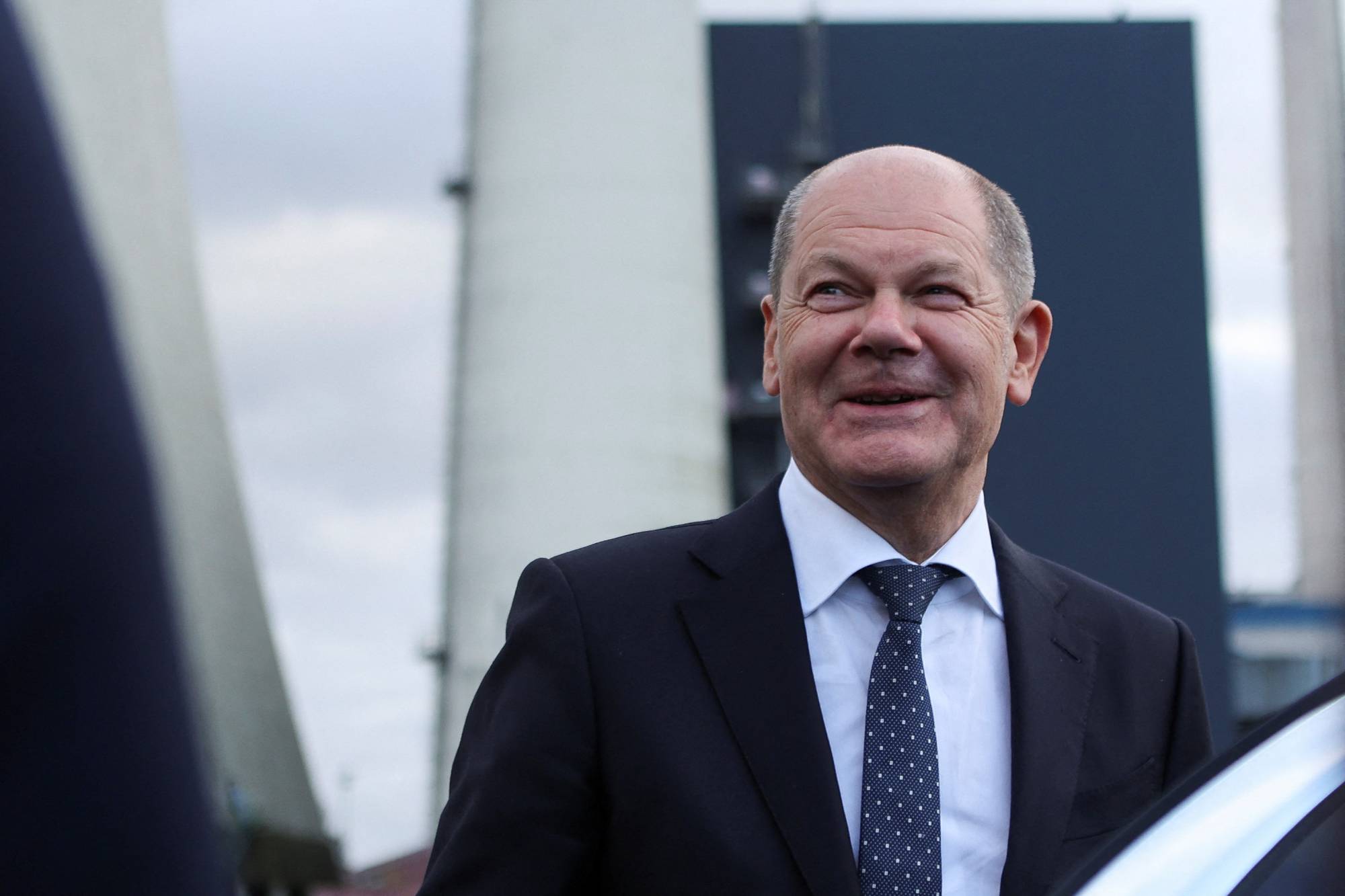In the shadow of the decaying Ensdorf coal plant, Olaf Scholz met with businesses and political leaders on Wednesday to celebrate the site’s future as a chipmaking factory for electric vehicles. It was a promising sign for the German chancellor after a hectic week of pitching Europe’s economic powerhouse as it pivots away from energy-intensive old technologies.
"The fact that the good old days are gone doesn’t mean that the good new days can’t begin,” Scholz said at the event, which marked a $3 billion deal between auto supplier ZF Friedrichshafen and American semiconductor maker Wolfspeed Inc.
The windswept site in Germany’s tiny western Saarland region is, literally, half a world away from the South American capitals the 64-year-old toured last week. On Jan. 29, Scholz was in Buenos Aires, Argentina, securing access to that country’s hydrogen resources. On Monday, he was in Santiago, Chile, negotiating lithium supply for German industry. Later that day he was in Brazil, unveiling a €200 million environmental package with money earmarked for renewable energy initiatives. On all these stops, the underlying message to corporate Germany and the wider world was the same: Berlin is open for business.
















With your current subscription plan you can comment on stories. However, before writing your first comment, please create a display name in the Profile section of your subscriber account page.